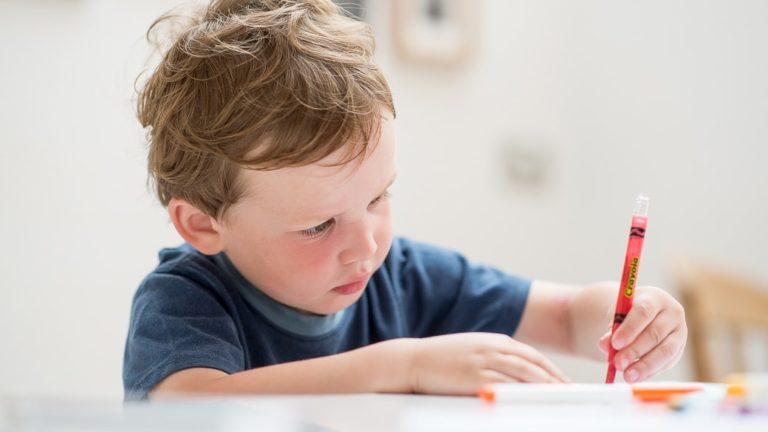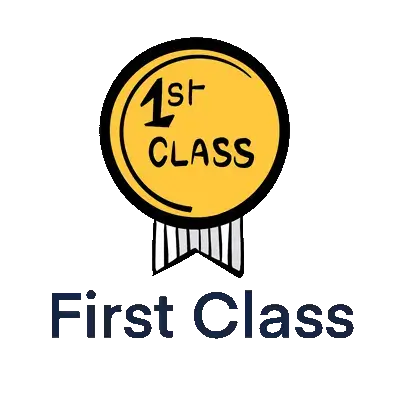Prepare your child for a 4 plus exam without a tutor
All 4+ exams are based on active learning, engagement in tasks and an ability to show co-operation, manners and tact in social environments. These are all skills which can be developed at home by parents or with a tutor. Judith, an experienced teacher, shows us how
Update December 2024 – we’ve gone through the below and tidied up it a bit! The below was written almost ten years ago. We hope you find it useful
Introduction
4+ entrance exams are becoming increasingly popular in central London and the surrounding areas, and parents are naturally concerned that their children should be expected to display outstanding abilities in all curricular areas in order to secure a place in their preferred school.
Unfortunately, schools often don’t fully disclose exactly what they are looking for in a prospective pupil, which can lead to a level of worry. Rest assured there are simple steps you can take at home to ensure that your child is fully prepared for their exam.
You can cover the entire early years curriculum through play and fun activities at home using everyday items and objects.
For obvious reasons we can’t list the likely contents of all 4 Plus assessments here, but all 4+ exams are based on active learning, engagement in tasks and an ability to show cooperation, manners and tact in social environments. These are all skills which can be developed at home through good parenting and common sense approaches. Below is a guide which outlines each curricular area, what children of a school entrance age should be expected to do or know, and suggested activities and ideas to enhance your child’s abilities before the big day.
Literacy
Read, read and read some more! Being read to on a daily basis is the gateway to confident, independent readers, writers and spellers in the future. Read as much as you can with your child, selecting a range of fiction and non-fiction texts to introduce your child to a wide variety of genres. Reading can take place even when you haven’t got a book to hand – reading signs that you pass in the car, listening to audio books, reading menus, cereal packets… the list goes on. Never underestimate the power of a traditional fairy tale either. Not only do these stories act as a base plot for when your child begins to write their own stories, they allow for actions to take place, rhyme to be taught, and they tend to follow a very distinct pattern where children can enjoy joining in with the story telling without necessarily being able to read. It is important for your child to be an active participant when reading a book, even when they aren’t yet able to read. By holding the book themselves, your child will be able to see how words and sentences are read from left to right, and that they can follow words with their fingers. Asking questions about the story, finding clues in the illustrations and making predictions about the text are all fantastic strategies for introducing comprehension and reading for meaning. As your child enters reception, they should be able to identify all the letters of the alphabet and find these letters in their stories. As soon as your child can read letters of the alphabet, they will be able to read and write letters using the “CVC” approach (“consonant, vowel, consonant”) Similarly, to get a head start, you can introduce your child to “diagraphs” (sh, ch, wh, th, etc) as this will allow them to begin reading words. You might like to check out our ‘Step-by-step guide to Phonics’ to start you off.
There are also other fantastic websites with freely available phonics resources:
All of these sites and many more offer matching games, bingo, flash cards amongst many other activities to reinforce letter sounds, diagraphs, vowels and double consonant sounds.
In terms of writing, by Reception your child should be able to write their name. Teaching correct letter formation from the off is vital, as if it is not identified early on your child will develop habits that are increasingly difficult to break the older they get. Letter formation can be encouraged by using playdough, chalk, sand, shaving foam (if you don’t mind the mess!), whiteboard pens etc. It is important to give your child as many opportunities to write freely as well, where the emphasis is on the purpose of writing rather than solely the handwriting. Shopping lists, letters, posters, signs and invitations are all great ways to help your child see the importance of writing. Lastly, having resources freely available for your child to write is a great way to give them ownership of their own learning. Having an allocated area with paper, card, postcards, envelopes and a variety of pens and pencils makes writing a really fun and pleasurable activity for young children.
Numeracy
By the end of reception, your child should be able to count, recognise and write numbers to 20.
Again, number formation is very important from an early age and very often this is something schools will look for in an exam. Using malleable objects will help your child to remember how to correctly form numbers. Dominoes and dice games can support counting and the recognition of numbers, as can asking your children to help with jobs around the house – how many knives and forks will we need to set the table? How many pairs of socks are we hanging on the washing line? etc.
Shape is also an easy one – making pictures using different paper shapes while discussing the correct shape names and their features. Really, any discussion surrounding maths should be encouraged. When shopping, ask your child to count how many items are in the basket. Give them ownership of money by asking them to count how many coins are in their purse. Also, introduce your child to time by giving them their own special watch or clock in their room. They won’t be expected to tell the time at this age but you will be able to discuss different times of day and the activities that happen during this time. Finally, use Maths to help your child have a tidy and organised bedroom – introduce measure! Ask your child to sort their toys in order or colour, size, or weight, and regularly use vocabulary such as ‘heavy’, ‘light’, ‘approximately’, ‘smaller’, ‘larger’ etc.
Gross and fine motor control
Developing motor control is crucial at this stage in your child’s development as it will improve their handwriting, therefore making writing easier. It will also allow them to become more independent as they will be able to tackle small, but importance tasks such as buttoning their coat and tying their shoe laces. Any activity to strengthen these muscles should be encouraged– use play dough, cornflour, thread beads, introduce construction with small lego, use tweezers to pick up dry pasta etc. These will help with motor control and also develop other crucial skills at the same time, such as concentration and resilience. These are skills which will be observed in the 4+ exam.
Personal, Social and Emotional
This is arguably the most important area of the curriculum.
During the 4+ exam you child will be closely observed to see if they are able to work cooperatively with others and behave appropriately in a school setting. It is so important that your child mixes with others on a regular basis, and that they are immersed in experiences where they are expected to share, listen and respond. Simple family board games introduce the concepts of success and failure, and regular playdates will allow your child to build friendships with others and develop key social skills.
It is also very important to ensure that your child is provided with opportunities to mix with children who aren’t in their friendship circle. Meeting new friends at the park, going on public transport and being introduced to adults are huge learning curves for children as they need to develop a confidence to engage in conversation with someone new and show manners. The school entrance exam can be a daunting prospect for your child, but if they have been exposed to a variety of new social situations and often meet others out with their friendship circle, this should alleviate some anxiety.
Conclusion
Your child should be given as much time as possible to enjoy their childhood and if their pre-school or nursery is doing their job properly, and the school choice is appropriate, your child should be ready for future entrance exams.







Hello,
I completely agree with this article! Children at this age can not be tutored, I tried a person who said they could but wanted me to start 1 year in advance and I had to do all the work. I found that it started putting a strain on my relationship with my daughter and stopped. She was too young and believe she is still to young. Well done for writing this article, I just wish I had seen this last year and not wasted so much money!